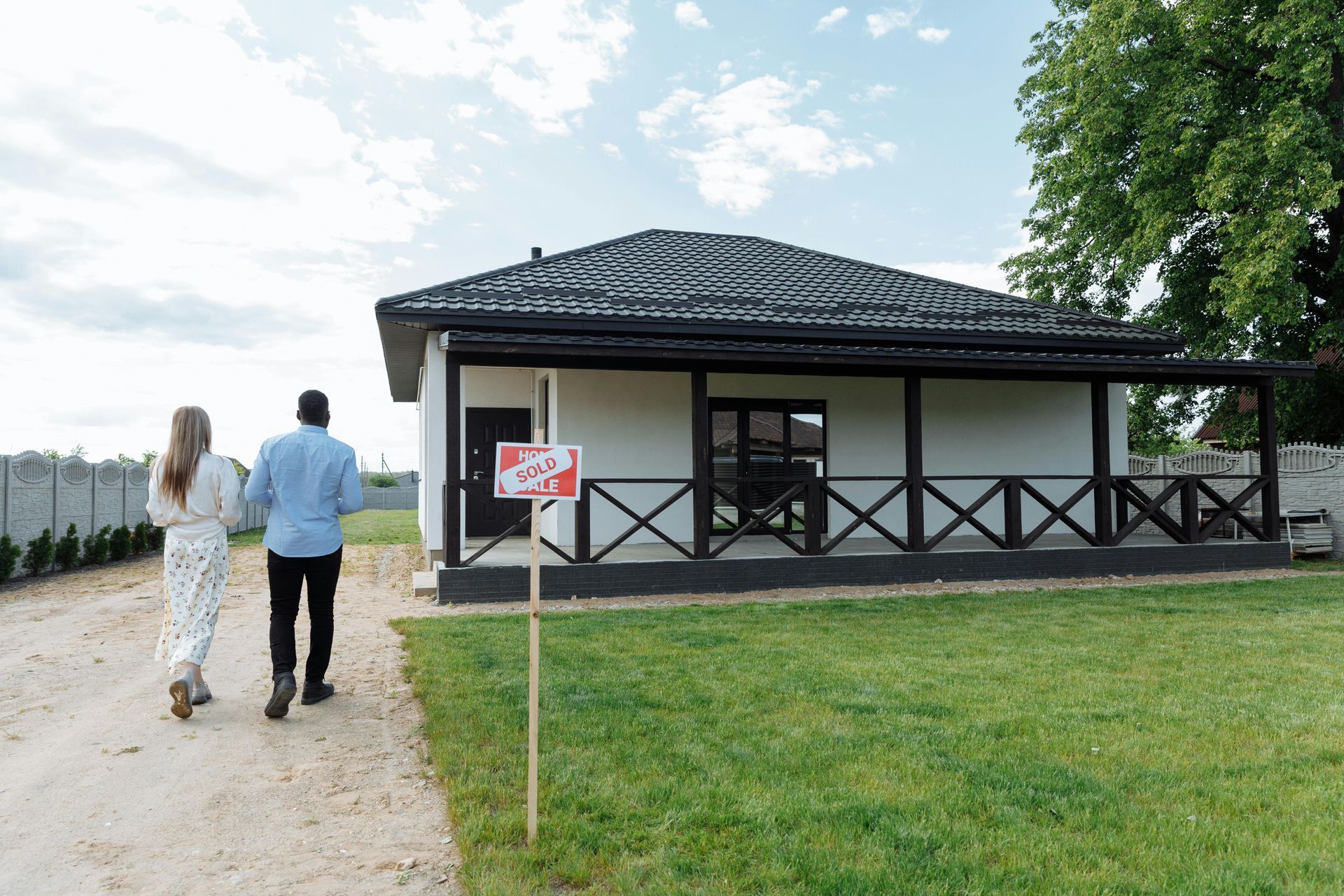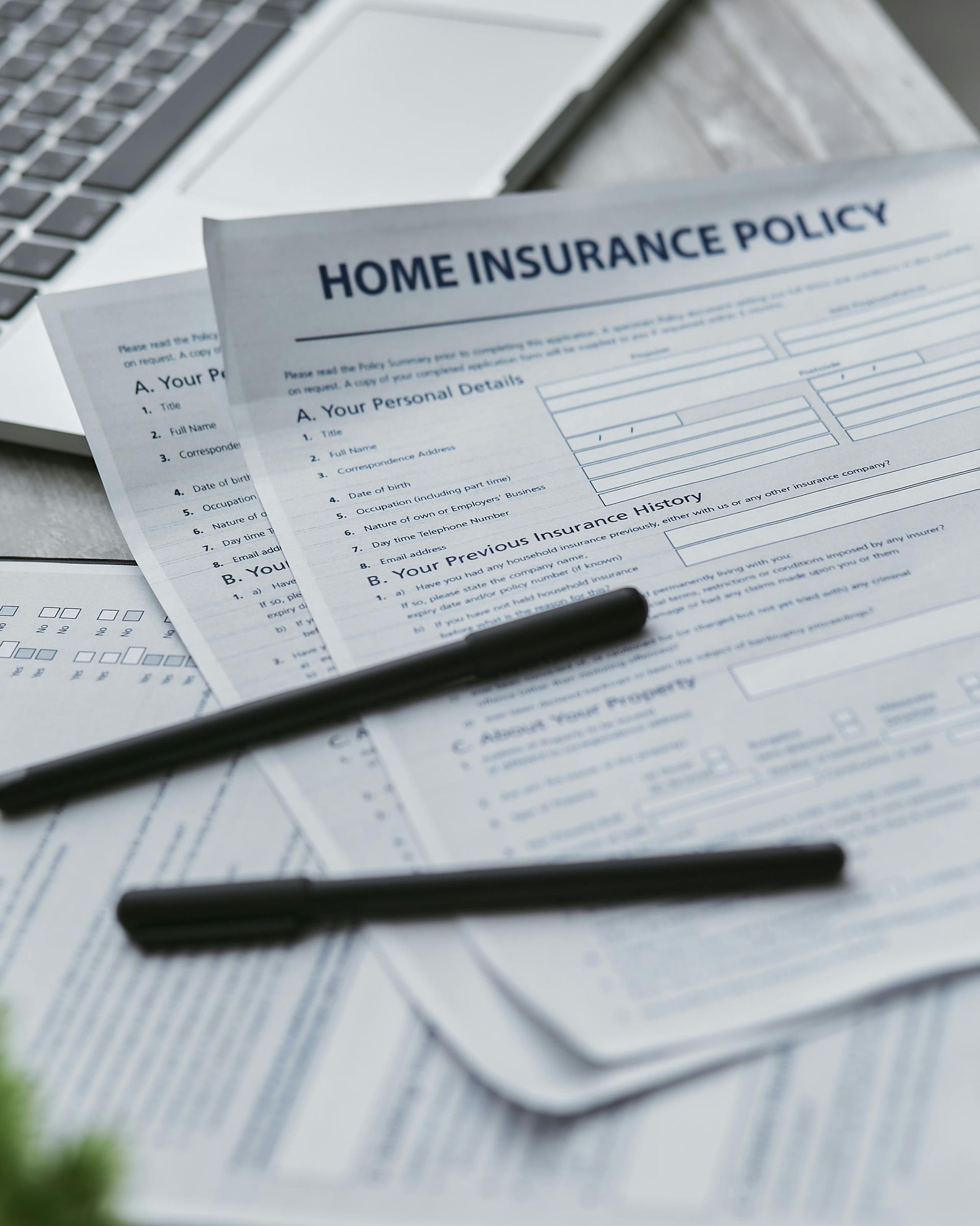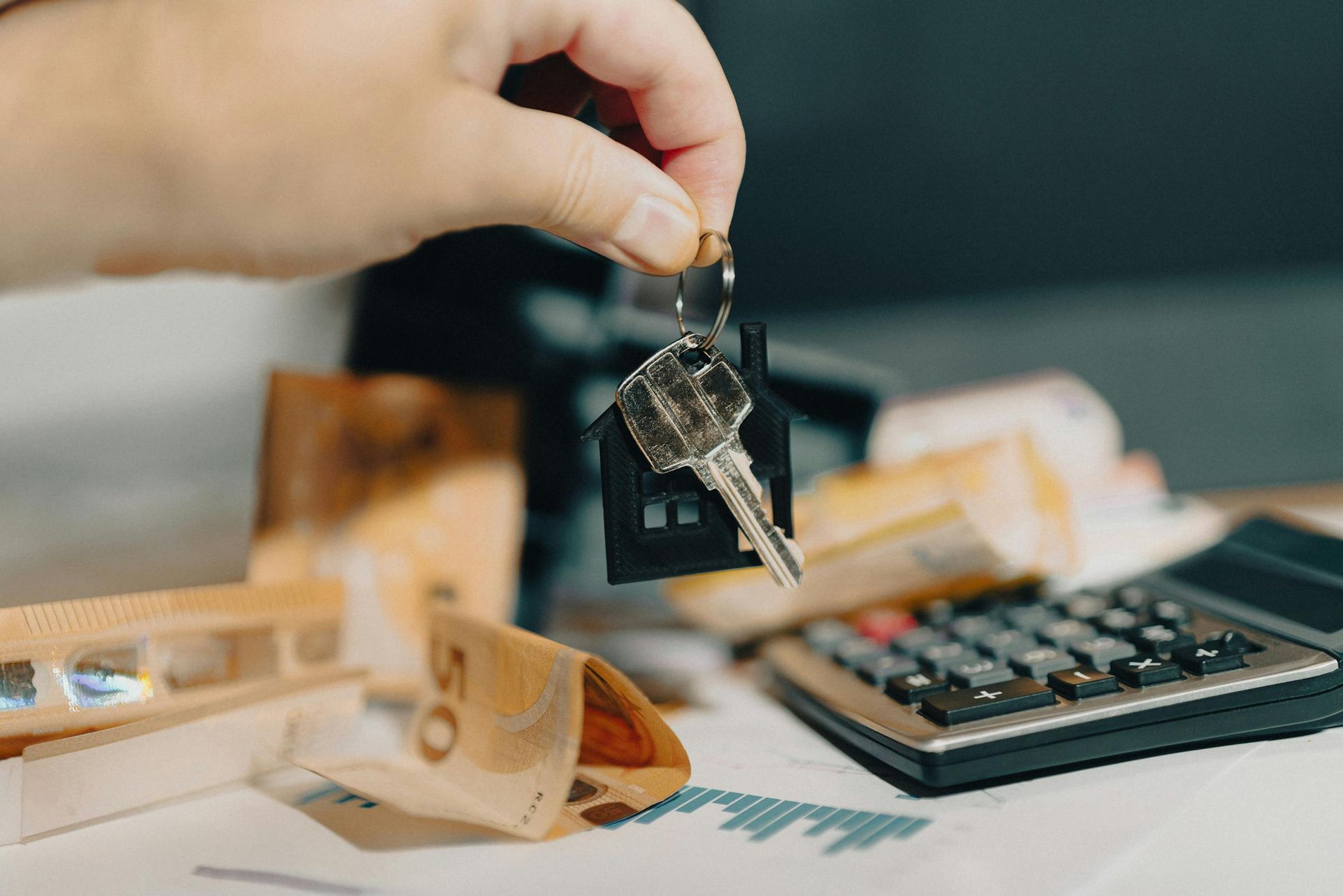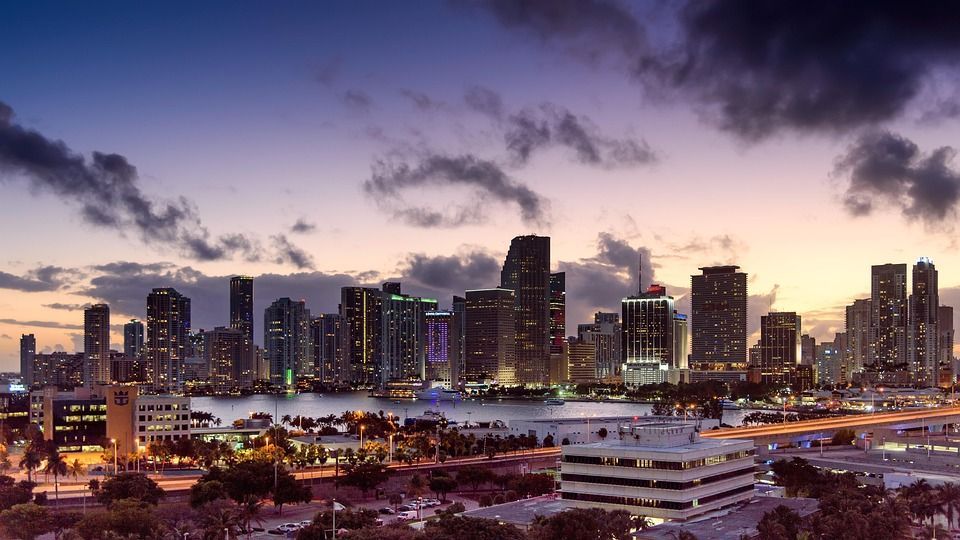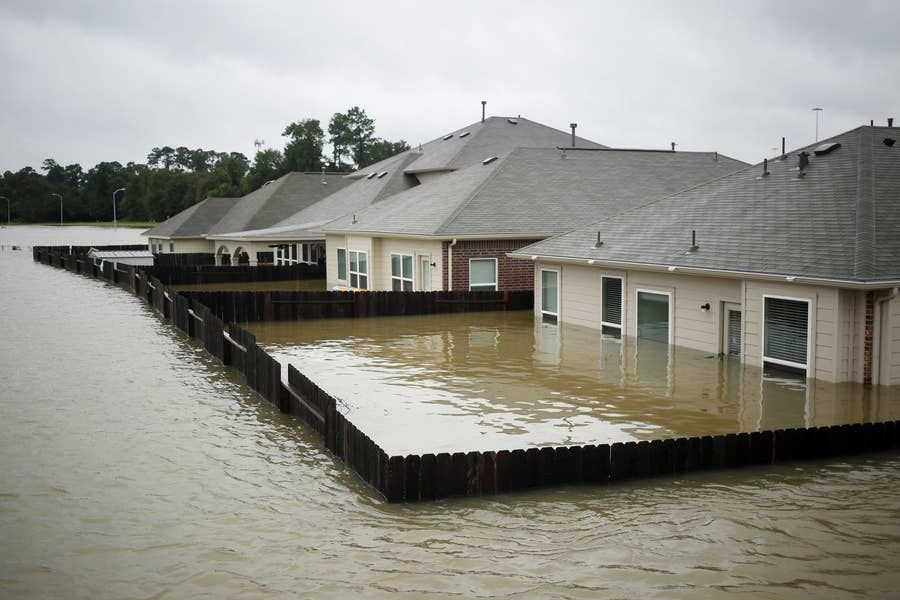Homeowner’s Insurance: Protect Your Investment Today
Safeguard your property with homeowner’s insurance. Discover essential tips for choosing the right coverage to protect your investment wisely on our blog.

Key Highlights
- Your homeowners insurance policy is a key tool for financial protection against unexpected events.
- A standard insurance policy typically covers property damage to your home's structure and your personal belongings.
- Miami’s location means you need to consider specific risks like hurricanes, which may require separate insurance coverage.
- Comparing different insurers and coverage options is crucial to finding a policy that fits your budget and needs.
- You can often lower your premiums by bundling policies, improving your home’s safety, and choosing a higher deductible.
Introduction
Your home is more than just a building; it's a significant investment and a place filled with memories. Protecting it is a top priority. That's where homeowners insurance comes in. Having the right insurance coverage provides a safety net against unforeseen disasters, accidents, and losses. It’s not just about fulfilling a mortgage requirement—it’s about securing your financial future and gaining invaluable peace of mind. This guide will walk you through everything you need to know about protecting your Miami home wisely.
Understanding Homeowner’s Insurance in Miami

Navigating the world of homeowners insurance in Miami can feel complex, given the unique environmental risks of the area. An insurance policy here is not a one-size-fits-all product; it's a tailored plan designed to provide financial protection against specific local threats like hurricanes and flooding.
Understanding your coverage options is the first step toward making an informed decision. With the right knowledge, you can choose a policy that provides robust property coverage without breaking the bank. Let’s explore what homeowners insurance is and why it's so vital for Miami residents.
Definition and Purpose of Homeowner’s Insurance
At its core, homeowners insurance is a form of property insurance that offers financial reimbursement if your home or its contents are damaged or stolen. Think of it as a contract between you and an insurance company. You pay a regular premium, and in return, the insurer agrees to help cover the costs of a covered loss.
Your insurance policy details exactly what is covered, the limits of the coverage, and your deductible—the amount you pay out-of-pocket before the insurance kicks in. The primary purpose is to shield you from the potentially devastating financial impact of disasters like fires, theft, or major storms..
Without this protection, you would be solely responsible for covering all repair or replacement costs. With a variety of coverage options available, you can customize a plan that safeguards your home, your belongings, and your financial stability.
Why Homeowner’s Insurance Matters for Miami Residents
For Miami residents, homeowners insurance is not just a good idea—it's essential. The city's coastal location makes it particularly vulnerable to extreme weather, especially hurricanes and tropical storms. These events can cause widespread and costly damage, making robust insurance coverage a critical layer of financial protection.
Beyond natural disasters, a comprehensive policy also protects you from common household risks like fires, break-ins, or liability claims if someone is injured on your property. Imagine having to rebuild your life from scratch after a disaster. The right insurance can make this process manageable instead of financially crippling.
Ultimately, having a solid policy provides peace of mind. Knowing that your largest asset is protected allows you to enjoy your home without the constant worry of "what if." It’s a smart investment in your family's security and your own well-being.
Essential Coverages in a Standard Miami Homeowner’s Policy
A standard homeowners policy is a bundle of different types of insurance coverage designed to protect you from various risks. These coverages work together to provide a comprehensive safety net, but each has its own purpose and coverage limits.
Key components include protection for property damage to your house itself, coverage for your personal property, and liability protection. Policies also often include coverage for loss of use, which helps with living expenses if your home becomes uninhabitable. Let’s look at these essential coverages more closely.
Property Damage Coverage Explained
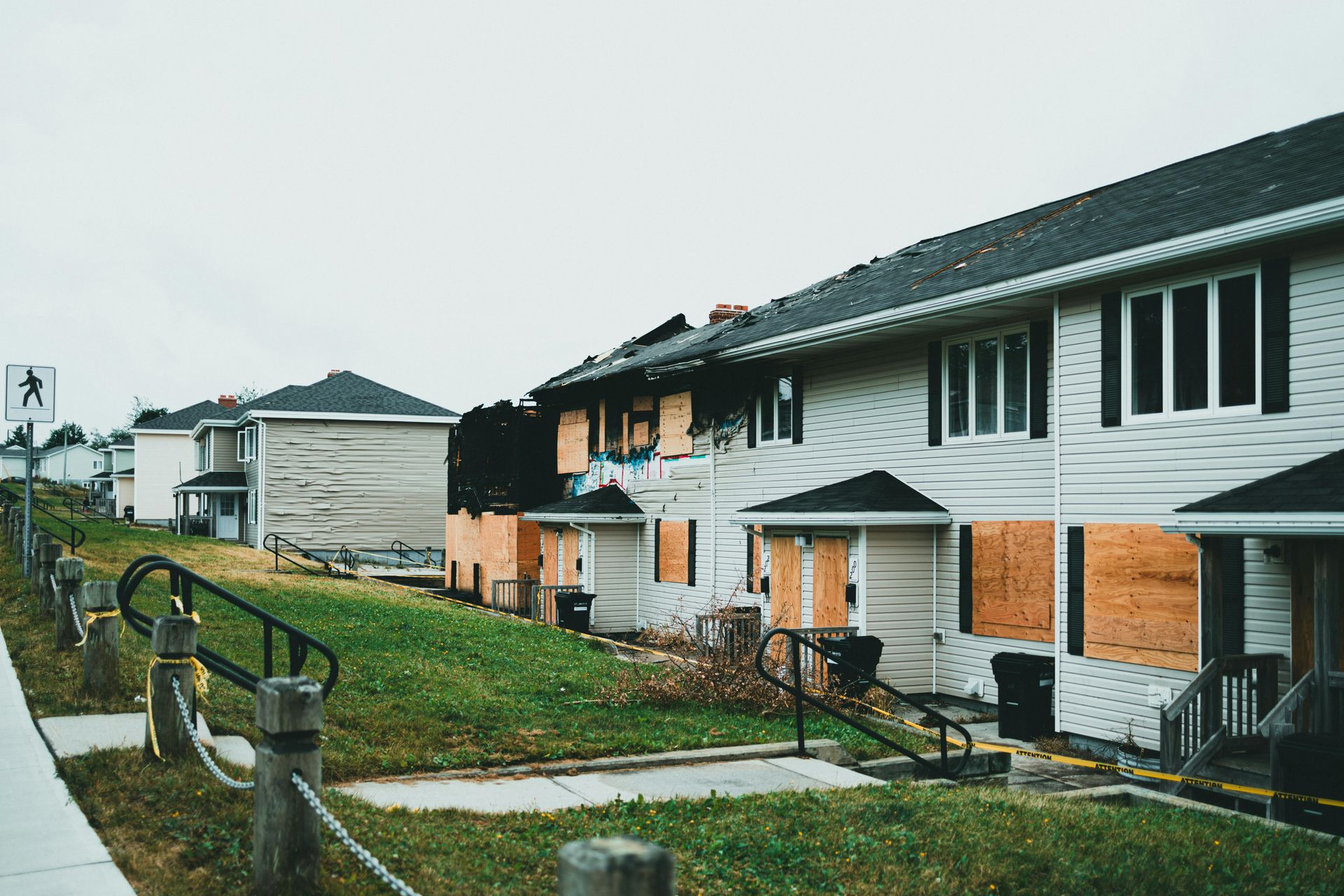
Property damage coverage, often called dwelling coverage, is the part of your policy that protects the physical structure of your house. This includes the walls, roof, and foundation, as well as built-in appliances and attached structures like a garage. If your home is damaged by a covered event like a fire, windstorm, or falling tree, this is the coverage that pays for repairs.
The goal of this insurance coverage is to restore your home to its previous condition. When selecting your policy, you'll need to decide on the amount of property coverage you need. This is typically based on the estimated replacement cost of your home—what it would cost to rebuild it from the ground up today, not its market value.
Ensuring you have enough dwelling coverage is crucial. Being underinsured could mean you have to pay a significant portion of the rebuilding costs yourself after a major disaster.
Personal Property Protection
While dwelling coverage protects your house, personal property coverage protects what's inside it. This includes your furniture, electronics, clothing, and other personal belongings. If your possessions are stolen, damaged, or destroyed by a covered peril, this part of your insurance policy helps you replace them.
The amount of personal property coverage is usually set as a percentage of your dwelling coverage, often between 50% and 70%. To make sure you have enough protection, it’s a great idea to create a home inventory—a detailed list of your belongings and their estimated value. This list can be invaluable if you ever need to file a claim.
Some policies may have limits on high-value items like jewelry, art, or collectibles. If you own such items, you might need to purchase additional coverage, known as a "rider" or "floater," to ensure they are fully protected.
Liability Coverage for Homeowners

Liability coverage is a vital part of your policy that protects you financially if you are held responsible for injuries to others or damage to their property. For example, if a visitor slips and falls on your walkway or your dog bites a neighbor, your personal liability coverage can help pay for their medical bills and your legal expenses if you are sued.
This coverage isn't limited to incidents that happen at your home. It typically follows you and your household members anywhere in the world. Standard policies often include a significant amount of liability protection, but you can purchase additional coverage through an umbrella policy for extra security.
Most policies also include a smaller amount of coverage for medical payments to others. This can be used to cover minor injuries for non-household members on your property, regardless of who was at fault, helping to resolve small incidents before they escalate into a lawsuit for a covered loss.
Additional Living Expenses Coverage
Additional Living Expenses (ALE) coverage, also known as loss of use coverage, is a lifesaver if a covered disaster makes your home uninhabitable. This part of your insurance policy helps pay for the extra costs of living elsewhere while your home is being repaired or rebuilt.
What does this cover? It can include expenses like hotel bills, rent for a temporary apartment, and even the cost of restaurant meals if you don't have access to a kitchen. The goal is to help you maintain your normal standard of living without draining your savings.
When reviewing coverage options, pay attention to the limits on your ALE coverage. It's usually set as a percentage of your dwelling coverage or limited to a specific time frame, such as 12 or 24 months. Ensuring you have adequate loss of use protection provides critical support during a stressful time.
Common Types of Damage Covered in Miami
A standard home insurance policy in Miami covers a range of common perils that can cause property damage, such as fire and theft. However, due to its location, Miami homeowners must pay special attention to risks like hurricanes and flooding.
It's important to understand that not all water damage is the same, and standard policies have specific exclusions. For instance, damage from a burst pipe is usually covered, but damage from a widespread flood is not. This often requires a separate flood insurance policy to ensure you're fully protected within your coverage limits.
Hurricane and Windstorm Coverage
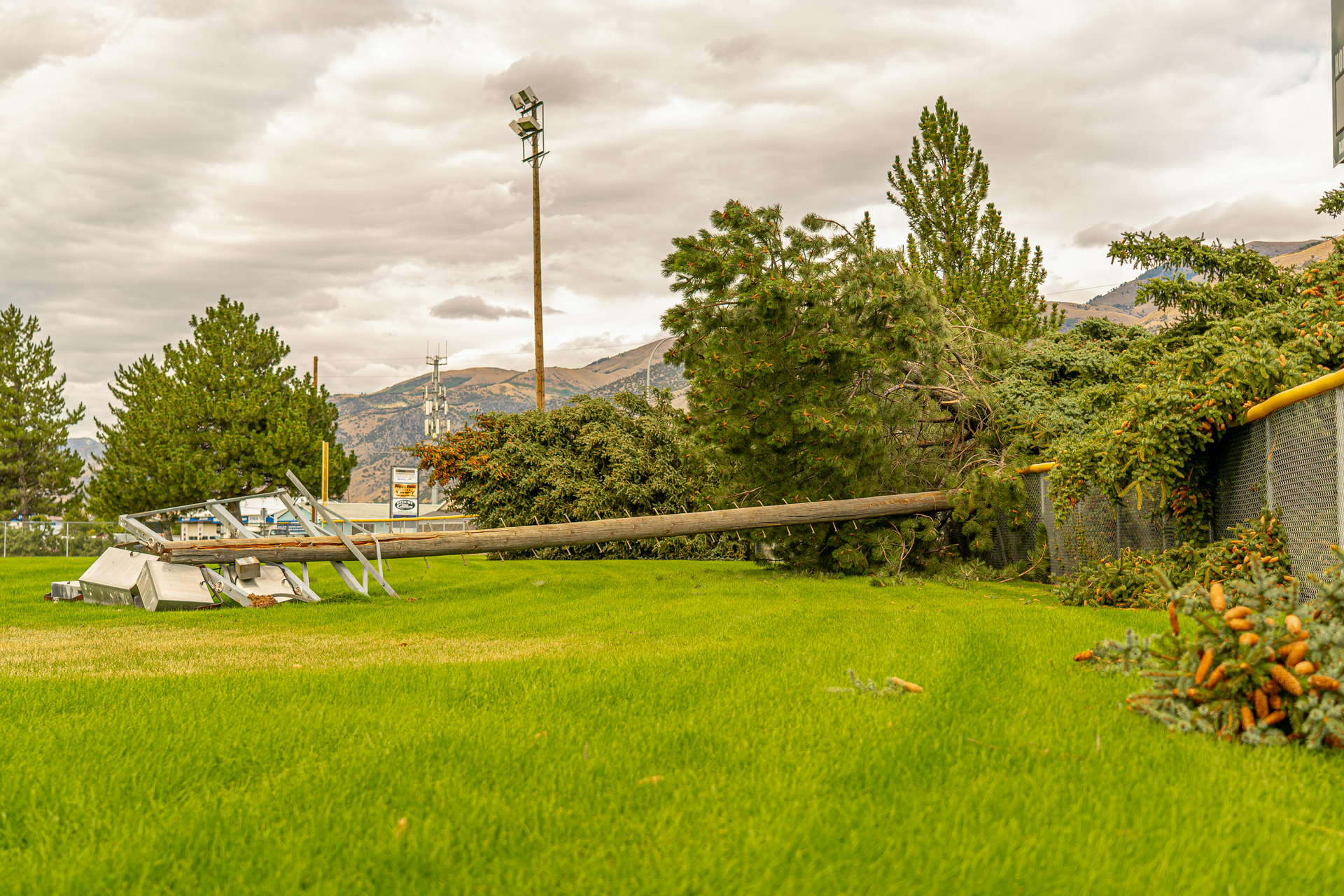
Living in Miami means preparing for extreme weather, and that includes having the right insurance coverage for hurricanes and windstorms. Damage from wind is typically included in a standard homeowners policy. However, in hurricane-prone areas like Florida, policies often have a separate, higher deductible for hurricane or windstorm damage.
This deductible is usually a percentage of your home's insured value, such as 2% or 5%, rather than a flat dollar amount. This means if your home is insured for $300,000 with a 2% hurricane deductible, you would be responsible for the first $6,000 of damages.
Key things to know about this coverage include:
- The deductible is triggered only by a named storm.
- You may have options to choose a higher or lower deductible to adjust your premium.
- Reinforcing your home against wind can sometimes lead to insurance discounts.
Flood and Water Damage Considerations
One of the most critical facts for Miami homeowners to understand is that standard insurance policies do not cover damage from flooding. This includes storm surges from hurricanes, overflowing rivers, or heavy rainfall that saturates the ground. For this protection, you need a separate flood insurance policy
.
Given that 54% of Miami properties are at risk of moderate flooding in the next 30 years, securing flood insurance is a wise decision. This coverage can be purchased through the National Flood Insurance Program (NFIP) or private insurers. Without it, you would bear the full cost of a covered loss from water damage caused by a flood.
Important considerations for flood insurance are:
- There's usually a 30-day waiting period before the policy becomes active.
- Even if you don't live in a high-risk flood zone, you can still experience flooding.
- Mortgage lenders often require flood insurance for homes in designated high-risk areas.
Fire, Theft, and Vandalism Protection
Beyond weather-related risks, your insurance policy provides crucial protection against other common perils like fire, theft, and vandalism. These events can cause significant property damage and loss of personal property, and having coverage ensures you're not left with the entire bill.
Fire coverage helps pay to rebuild your home and replace your belongings. Theft coverage reimburses you for stolen items, while vandalism coverage pays for repairs if your property is intentionally damaged. Taking steps to improve your home security can help prevent these incidents and may even lower your insurance premiums.
Installing security systems, smoke detectors, and deadbolt locks demonstrates to insurers that you are proactive about protecting your property. Always check your policy for specific details and limits related to these coverages to ensure you have the protection you need.
Factors That Affect Home Insurance Rates in Miami
Why do home insurance rates vary so much from one person to the next? Insurance companies use a complex risk assessment process to determine the premium for your home insurance policy. Several factors influence this calculation, from your home's location down to your personal financial history.
Your ZIP code, the age and construction of your home, and even your credit score can all play a role. Understanding these factors can help you identify ways to potentially lower your costs. Let’s break down some of the most significant elements that impact your rates.
Home Location and Risk Assessment
Your home's location is one of the biggest factors that insurance companies look at during their risk assessment. Your specific ZIP code provides a wealth of information about potential risks in your area. For instance, homes located closer to the coast are considered at higher risk for hurricane damage, leading to higher premiums.
Insurers also consider local crime rates and the proximity of your home to a fire station or fire hydrant. A home in a neighborhood with a lower crime rate and better access to emergency services is seen as less risky, which can translate into lower insurance costs.
Ultimately, insurers are trying to predict the likelihood that you will file a claim. The more risks associated with your location, the higher the premium will be to offset the potential cost of that claim. This is why property coverage costs can vary significantly even within the same city.
Property Age and Condition
The age and condition of your property also heavily influence your home insurance policy rates. Older homes often have higher premiums because their systems, like plumbing, electrical, and roofing, may be outdated and more prone to failure. Materials used in older construction can also be more expensive to repair or replace, driving up the potential replacement cost.
For example, a home with a roof that is over 15 years old may face higher rates or even be denied coverage by some insurers. Conversely, a newer home built with modern, resilient materials may qualify for more affordable homeowners insurance.
Keeping your home well-maintained is key. Regular updates to major systems not only make your home safer but can also signal to insurers that your property is a lower risk. This can be a great way to manage your insurance costs over the long term.
Credit Score Impact on Insurance Costs
It might surprise you, but your credit score can have a direct impact on your insurance costs. In Florida, insurance companies are permitted to use a credit-based insurance score when calculating premiums for your home insurance policy. This practice is based on statistical data that shows a correlation between credit history and the likelihood of filing a claim.
Individuals with lower credit scores are statistically more likely to file claims, so insurers often charge them higher rates to compensate for this increased risk. On the other hand, a good to excellent credit score can help you secure a more favorable rate.
While improving your credit score takes time, it's a worthwhile effort that can lead to significant savings on your insurance premiums. Paying bills on time and managing your debt responsibly are great steps toward not only better financial health but also lower insurance costs.
How to Find Reliable Homeowner’s Insurance Providers in Miami
Finding the right provider in Miami's challenging insurance market requires some research. With some insurance companies leaving the state, it's important to choose one with strong financial stability and a reputation for good customer service. Comparing different homeowners insurance policies is a must.
You can research companies online, read reviews, or work with local agents who understand the Miami market. A reliable provider will be transparent about coverage and responsive to your needs. Let's look at how to identify the best companies for you.
Top-Rated Companies in the Area
When searching for reliable insurance companies in Miami, it's helpful to look at providers known for their financial strength and positive customer service records. Companies like State Farm, Tower Hill, Kin, and Chubb are often highlighted as strong options for Florida homeowners.
State Farm is well-regarded for its extensive network of local agents and high customer satisfaction scores. Tower Hill and its subsidiary, Tower Hill Insurance Exchange, are Florida-specific companies that offer customizable homeowners insurance policies, including private flood insurance. Kin is a newer, tech-focused insurer that caters to high-risk states, while Chubb specializes in coverage for high-value homes.
Here’s a quick look at some top providers and what they’re known for:
| Company | Best For |
|---|---|
| State Farm | Local agents and customer service |
| Tower Hill | Customizable policies |
| Kin | Online policy management |
| Chubb | High-value homes |
The body content of your post goes here. To edit this text, click on it and delete this default text and start typing your own or paste your own from a different source.
Checking Reviews and Customer Satisfaction
When you're shopping for homeowners insurance, price is important, but so is the quality of customer service. Reading reviews and checking customer satisfaction ratings can give you valuable insight into how a company treats its policyholders, especially during the claims process.
Look for feedback on third-party sites and from consumer rating agencies like J.D. Power. These sources can reveal a lot about a company's responsiveness, fairness, and overall reliability. A company with consistently poor reviews might be a headache to deal with when you need them most.
When evaluating insurers, consider the following:
- Look for trends in reviews regarding claims handling and communication.
- Check financial strength ratings from agencies like AM Best or Demotech to ensure the company can pay claims.
- Compare different insurance products to see which company offers the flexibility you need.
Working with Local Insurance Brokers
Navigating the complexities of Miami's insurance market can be easier with an expert on your side. Working with local agents or insurance brokers provides access to professional guidance and industry knowledge. These experts can help you compare various insurance products from multiple carriers to find the best fit.
A broker's main advantage is their ability to offer personalized insurance plans. They take the time to understand your specific needs, property details, and budget to craft a policy that provides the right protection. This level of customized customer service can be difficult to find when dealing directly with large, national companies online.
Benefits of working with a local broker include:
- Expert advice tailored to the Miami market.
- Access to policies from multiple insurance companies.
- Personalized assistance with quotes, policy management, and claims.
Comparing Homeowner’s Insurance Quotes in Miami
To ensure you get the best deal on your home insurance policy, it's essential to shop around and get a homeowners insurance quote from several different insurance companies. Don't just look at the price; compare the coverage options, deductibles, and policy limits to make sure you're getting an apples-to-apples comparison.
The cheapest quote isn't always the best one if it leaves you underinsured. By carefully evaluating each offer, you can find a policy that balances affordability with the robust protection your Miami home needs.
Online Quote Tools and Calculators
In today's digital world, getting an initial estimate for your home insurance policy has never been easier. Many insurance companies and third-party websites offer free online quote tools and calculators. These tools allow you to quickly get a sense of what you might pay for coverage.
You simply enter some basic information about yourself and your property, and the tool generates a preliminary quote in minutes. This is an excellent starting point for comparing prices from different providers without the pressure of speaking to an agent right away.
To make the most of these tools:
- Have your property details ready for a more accurate estimate.
- Use them to compare multiple companies side-by-side.
- Remember that these quotes are estimates; your final premium may be different after a full underwriting review.
What Information You Need to Get Accurate Quotes

To get an accurate quote for your insurance policy, you'll need to provide some specific information. The more detailed you are, the more precise the quote will be. Insurers need these property details to assess your risk and determine the appropriate premium.
You'll be asked for personal information, such as your name and date of birth, as well as details about your home. This includes its address and ZIP code, the year it was built, the square footage, and the type of construction. You should also be prepared to provide information about any safety features, like smoke detectors or security systems.
Key information you’ll need includes:
- The estimated replacement cost of your home.
- Details about your roof's age and material.
- Your claims history and desired coverage options.
Analyzing Coverage Options vs Cost
When comparing quotes, it's tempting to choose the lowest price. However, finding affordable homeowners insurance is about balancing cost with adequate protection. The cheapest insurance policy might have high deductibles or low coverage limits that could leave you financially vulnerable after a disaster.
Carefully review the coverage options in each quote. Ask yourself, "How much coverage do I really need?" Make sure the dwelling coverage is enough to rebuild your home and that the personal property and liability limits are sufficient for your needs.
To effectively analyze your options:
- Compare deductibles for standard and hurricane-related claims.
- Look at the specific perils covered and any exclusions.
- Consider adding endorsements for extra protection where you need it most.
Special Coverages to Consider for Miami Homes
Given Miami's unique risks, a standard insurance policy may not be enough. Homeowners should explore special coverage options to fill potential gaps in their protection. The most important of these is flood insurance, which is almost always excluded from standard policies.
Additionally, you might want to consider enhanced windstorm protection or other endorsements that offer a higher level of security against specific local threats. These add-ons can provide critical financial support when you need it most.
Flood Insurance Requirements
For Miami homeowners, flood insurance is a must-have consideration. Standard policies explicitly exclude damage from floods, meaning you need a separate flood insurance policy for protection against storm surges, heavy rains, and overflowing bodies of water. If you have a mortgage and live in a designated high-risk flood zone, your lender will likely require you to have it.
You can purchase a flood insurance policy through the National Flood Insurance Program (NFIP) or from a private insurer. Private policies may offer higher coverage limits and more flexibility. Remember that there is typically a 30-day waiting period before coverage takes effect, so don't wait until a storm is approaching to buy a policy.
Without flood insurance, you would be responsible for 100% of the costs to repair or rebuild your home after a covered loss from a flood. This could be a financially devastating event, making this coverage an essential part of your protection strategy.
Enhanced Windstorm and Hurricane Protection
While standard policies offer windstorm coverage, you may want to look into enhanced options for greater protection. Given the destructive power of a hurricane, ensuring your insurance coverage is robust enough to handle a worst-case scenario is a smart move.
Some insurers offer endorsements that provide extended replacement cost coverage. This gives you an extra cushion—typically 25% or more above your dwelling limit—to rebuild your home if construction costs surge after a major disaster. This can be invaluable when labor and materials are in high demand.
You can also discuss your coverage limits with your agent. Ensuring your limits for dwelling, personal property, and loss of use are adequate for your needs is the best way to prepare for a major storm. Don't be afraid to ask about specific endorsements that can strengthen your policy.
Bundling Home and Auto Insurance for Discounts
One of the easiest ways to save money on your homeowners insurance is by bundling it with your auto insurance. Most major insurers offer a multi-policy discount when you purchase both your home and car insurance from them. This can lead to significant savings on both policies.
The convenience of having all your policies with one company is another benefit. You'll have one point of contact for billing, questions, and claims, which can simplify your life. If you're happy with your current auto insurance provider, it's worth getting a quote from them for homeowners coverage.
When considering bundling:
- Ask your insurer about the potential discount amount.
- Compare the bundled price with quotes from other companies to ensure it's still the best deal.
- Review the coverage on both policies to make sure you're not sacrificing protection for savings.
Conclusion
In summary, homeowner’s insurance is not just a necessity but a smart investment that safeguards your property and finances. Understanding the coverage options available in Miami, such as hurricane protection and liability coverage, is crucial for keeping your home protected against unforeseen events. By considering all factors that influence insurance rates and working with reliable providers, you can find the right policy that fits your needs. Remember, protecting your investment wisely today can save you from significant challenges tomorrow. If you're ready to explore your options and ensure your home is covered, reach out for a free consultation and take the first step toward securing your peace of mind.
Frequently Asked Questions
What is the average cost of homeowner’s insurance in Miami, Florida?
The average cost of homeowners insurance in Miami is approximately $10,419 per year for $300,000 in dwelling coverage, which is significantly higher than the national average. However, insurance costs vary widely based on your ZIP code, home's value, and the insurer you choose, so it's possible to find more affordable homeowners insurance by comparing quotes.
Are there personalized insurance plans offered by Miami brokers?
Yes, local agents and brokers in Miami specialize in creating personalized insurance plans. They assess your unique needs and compare different insurance products from multiple carriers to tailor your insurance coverage. This high level of customer service ensures you get a plan that truly fits your property and budget.
Can I save money by bundling my home and auto insurance policies?
Absolutely. Most insurance companies offer a significant discount for bundling your homeowners insurance and auto insurance policies. Combining your home and car insurance with one provider is a simple and effective way to lower your premiums on both policies while simplifying your policy management.
The body content of your post goes here. To edit this text, click on it and delete this default text and start typing your own or paste your own from a different source.



